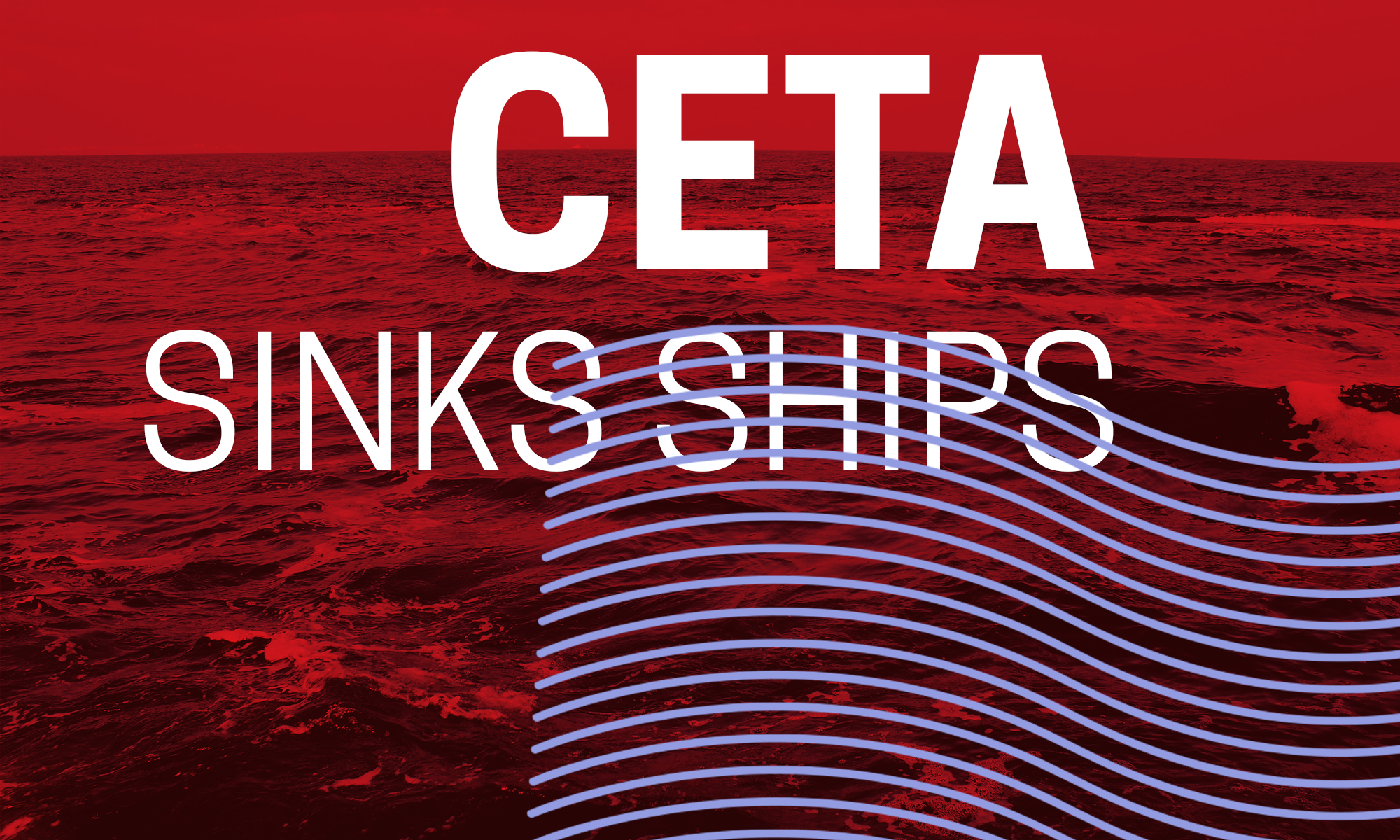As can be seen in the article below, resistance to CETA continues throughout Europe and elsewhere.
Paul Magnette, Minister-President of Wallonia, whose Parliament led others of Belgium to stand alone against CETA in the face of immense pressure from the agreement’s government and corporate supporters, spoke this Friday, 2/6/17 in Montreal at an event sponsored by the Conference on Foreign Relations.
Mr. Magnette reiterated that CETA’s raison d’être is not, as many suppose, about reducing tariffs, as these largely disappeared 20 years ago, in a previous trade agreement.
Tariffs amount on average to 3% overall and are no barrier to trade.
The issues are “non-tariff barriers”, and the real reason for the deal’s existence lays more with the extension of monopoly patents on such things as drugs or establishing corporate courts that can sue governments for perceived loss of profit but not vice-versa.
CETA becomes thus more understandable as a “protection racket”, whereby more guaranteed profit is extracted from the populace with little or no expenditure of resource or effort by the usually large and powerful beneficiaries of the deal, and the supposed benefit of greater access to foreign markets to small and medium-sized enterprises, largely unsought (particularly in light of the market access granted to large foreign players) is mostly used as an excuse.
Among these globally small, but significant gains, as seen in CETA’s Maritime Transport Chapter, are the Maritime Cabotage Rights granted to low wage European vessels ( largely but not solely at Article 14-3.2) and only temporarily, flimsily and apparently, limited by Reservation II-C-14 to the Halifax-Montreal Corridor and other less eye-catching concessions.
To the world’s Flag of Convenience Maritime Shipping Companies ( many based in Denmark), it is easy to see that Canada’s national Flag vessels would constitute quite a prize ( which could be a stepping stone to managing what is now the U.S. Merchant Marine.).
Much of the Canadian Merchant Marine could be considered to be constituted of the 150 or so vessels of over 1,000 tons currently under the Canadian flag. Imagine the cost difference (as seen by foreign, or even local, ship managers and accountants) if they were crewed by standard Flag of Convenience crews.
Even with Reservation II-C-14 still in place, someone’s boot is truly on the neck of all Canadian sailors: The degree to which Canadian crew costs can be driven down , thanks to CETA, are quite considerable, as can be witnessed by the C.S.L. Self-Unloaders contract proposal and others likely this year.
With the Dutch minority government having collapsed the same day Royal Assent was given to Bill C-30 and CETA, elections and a referendum on CETA are coming ( the same kind the Dutch used to cancel the Free-Trade Agreement between Holland and Ukraine a short while ago).
Mr. Magnette’s government has requested the European Court of Justice to issue a Legal Opinion on the compatibility of CETA with European law: Already, the German Constitutional Court has reservations about the Investor Dispute Settlement Mechanism, as well as the French Constitutional Court on that and other parts’ compatibility with French Constitutional protections for Equality before the law.
With CETA quite likely not to last more than a year, now would not be the time to sign crewing agreements that will last at least 6; Therefore, it is likely in the interests of all to delay such undertakings.
Because a strike is likely harmful to all ( ship-operators included), that maritime shipping is a significantly seasonal trade (and members with families can ill afford such action), this could be avoided, by permitting those who wish to do so, to continue to work at likely lesser conditions, if necessary, until CETA is known to remain or perish.
Should ship-operators be un amenable to this, it would be their prerogative to lock seafarers out, in which case members would at least be eligible for unemployment insurance benefits, which would not be the case with a strike.
There have been no notable strikes by Canadian seafarers since 1966. It has required a lot to bring us to the necessity of considering such action.
The means by which benefits are likely to accrue to those who have planned CETA’s Advent have not gone unconsidered by them.
It behooves us, in our inability to stop this great misfortune to Canadians and Europeans much earlier, to not grant more than a few months benefit to those who would happily draw them forever orif only for 6 years should their plans not come to fruition and we act as they would hope.
Sincerely,
Marc de Villers,
D-1289.
https://www.google.ca/amp/s/
